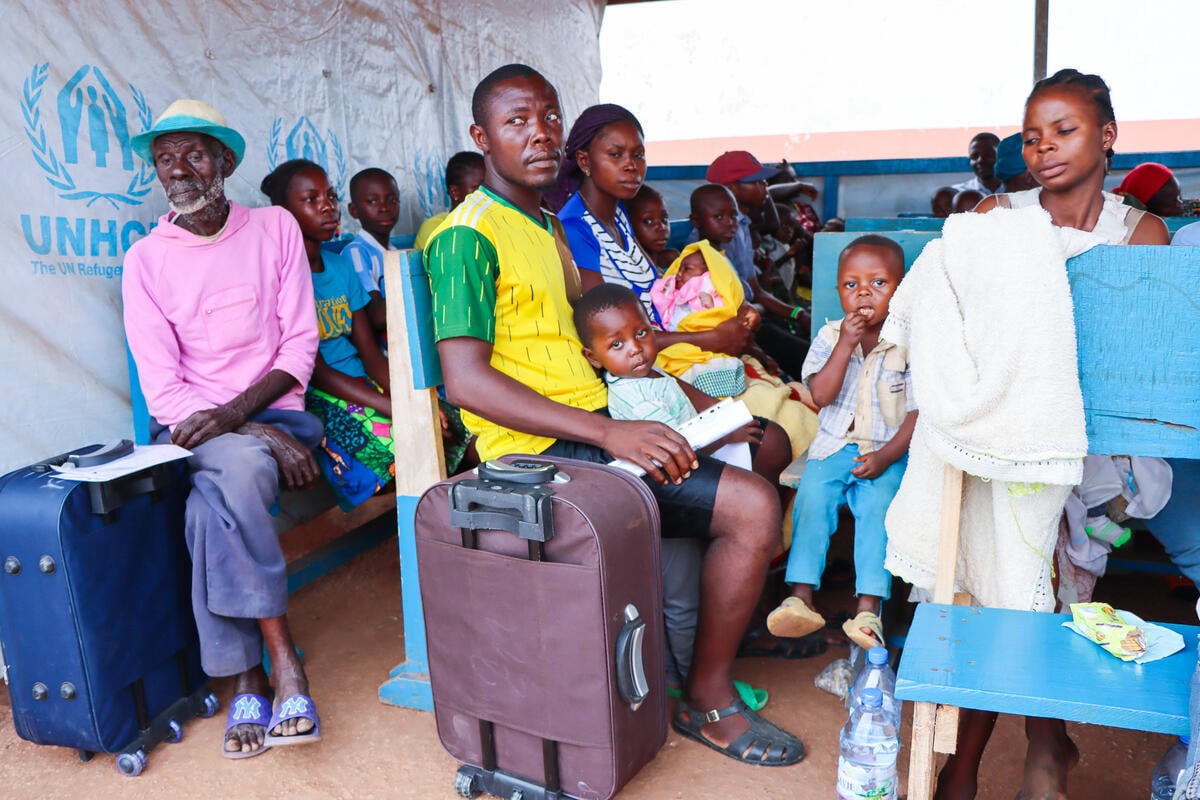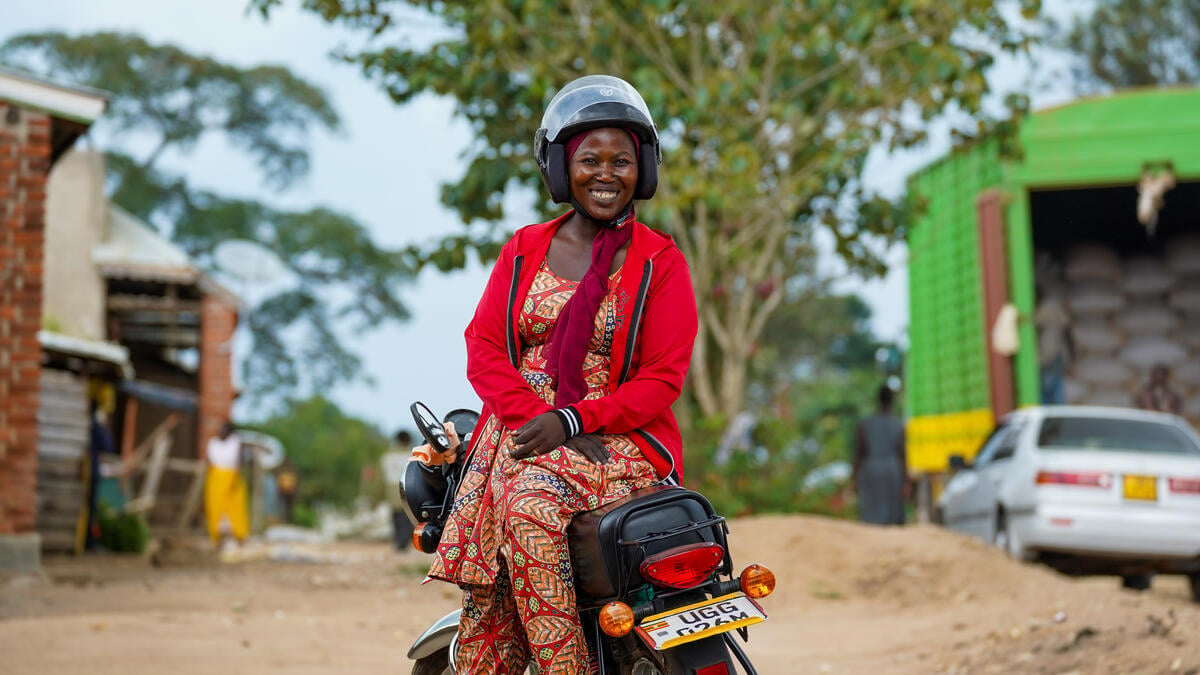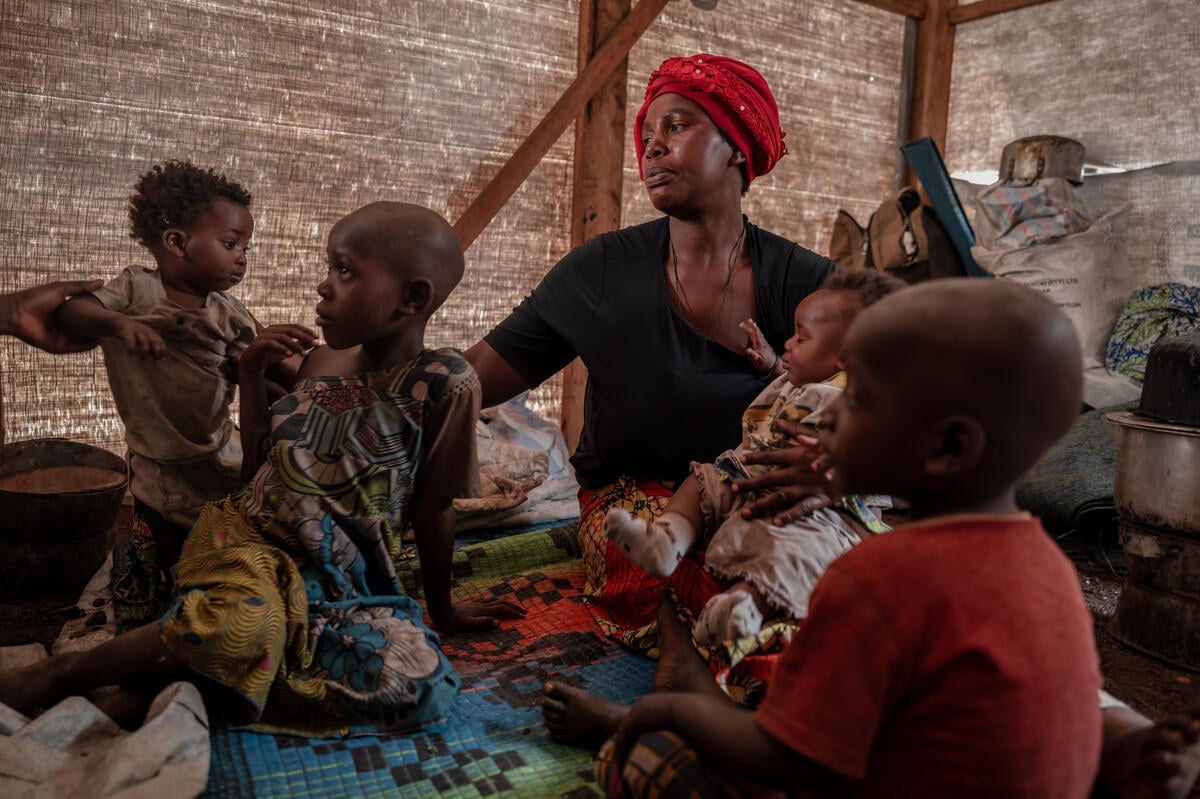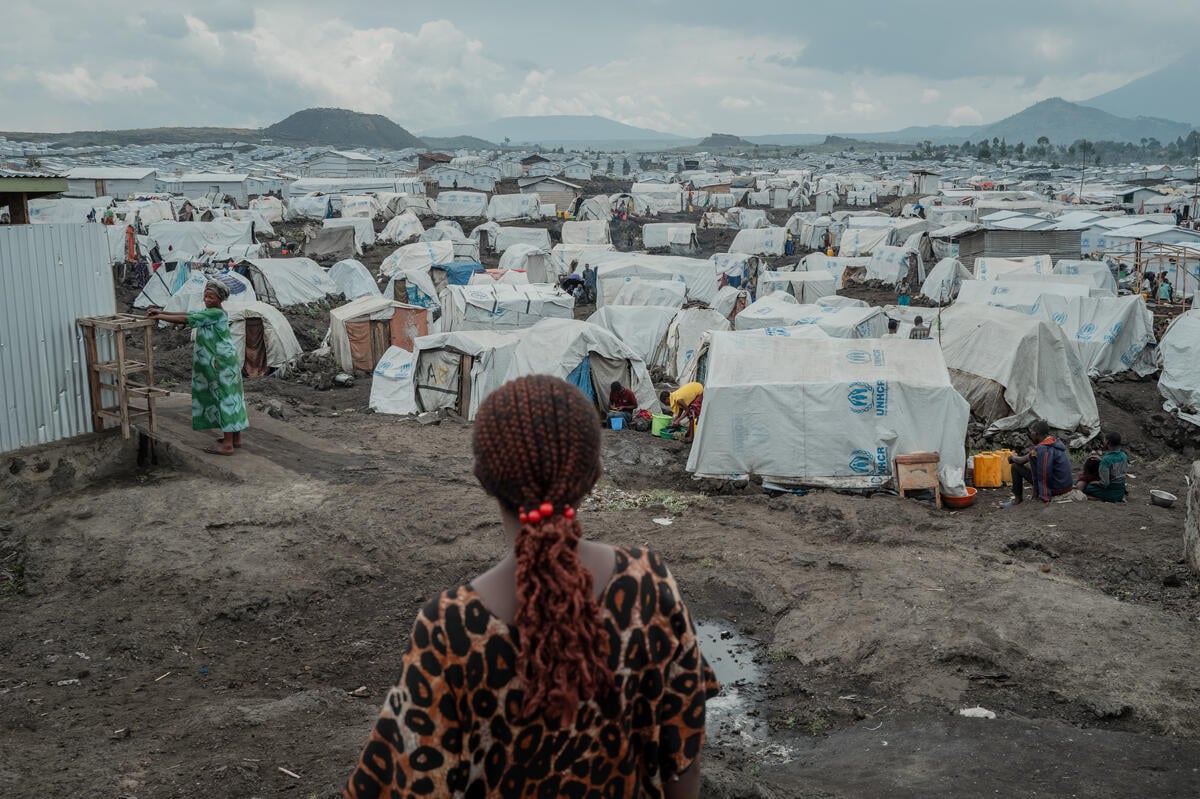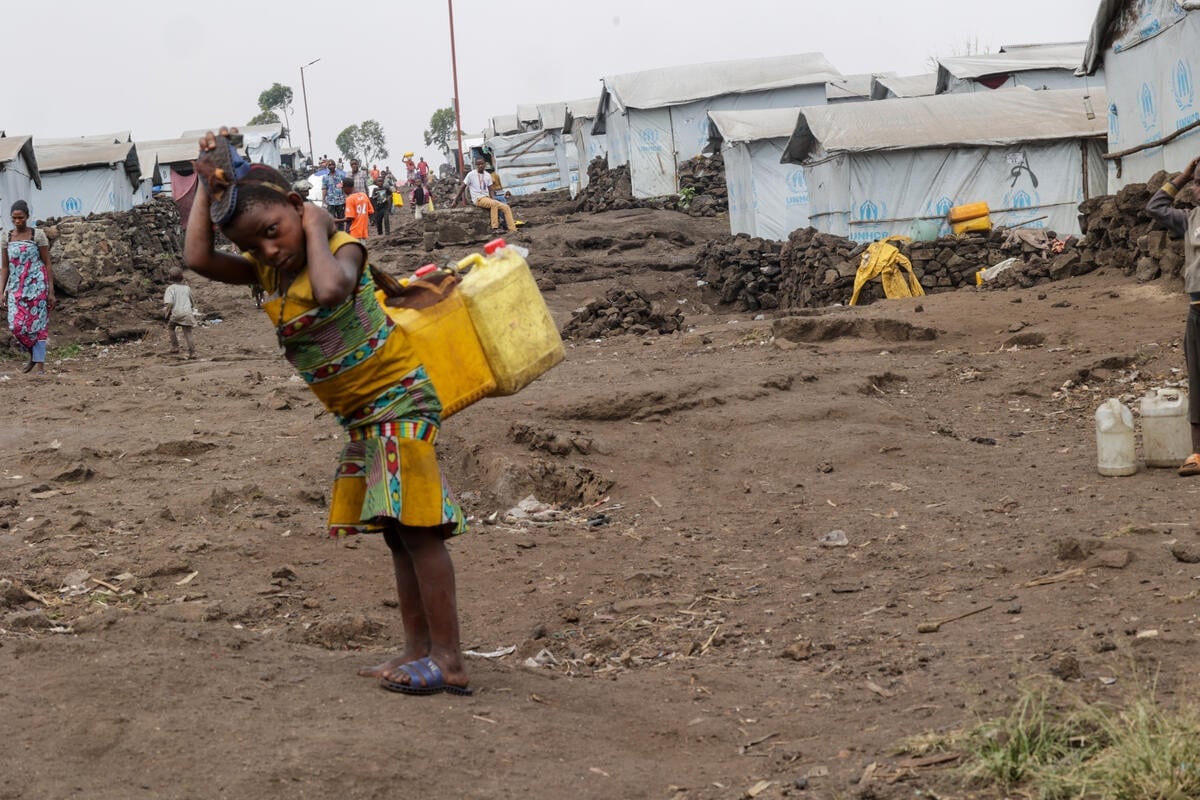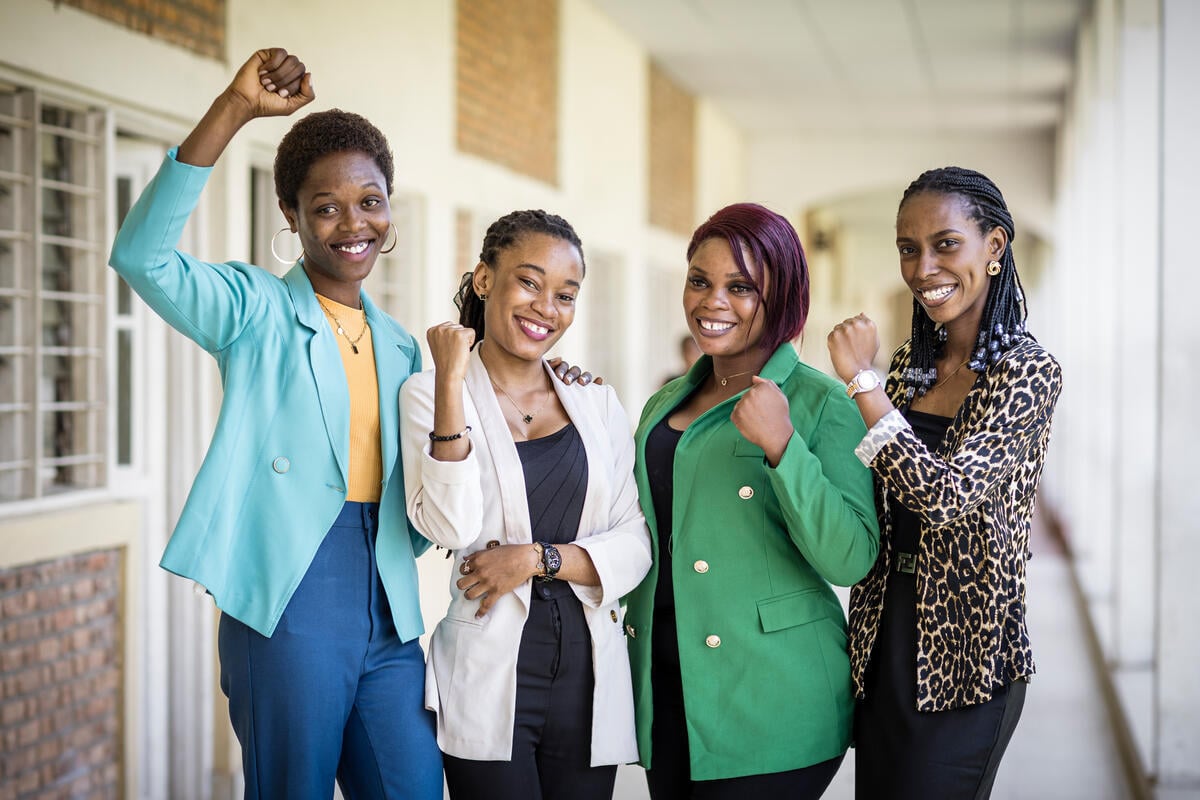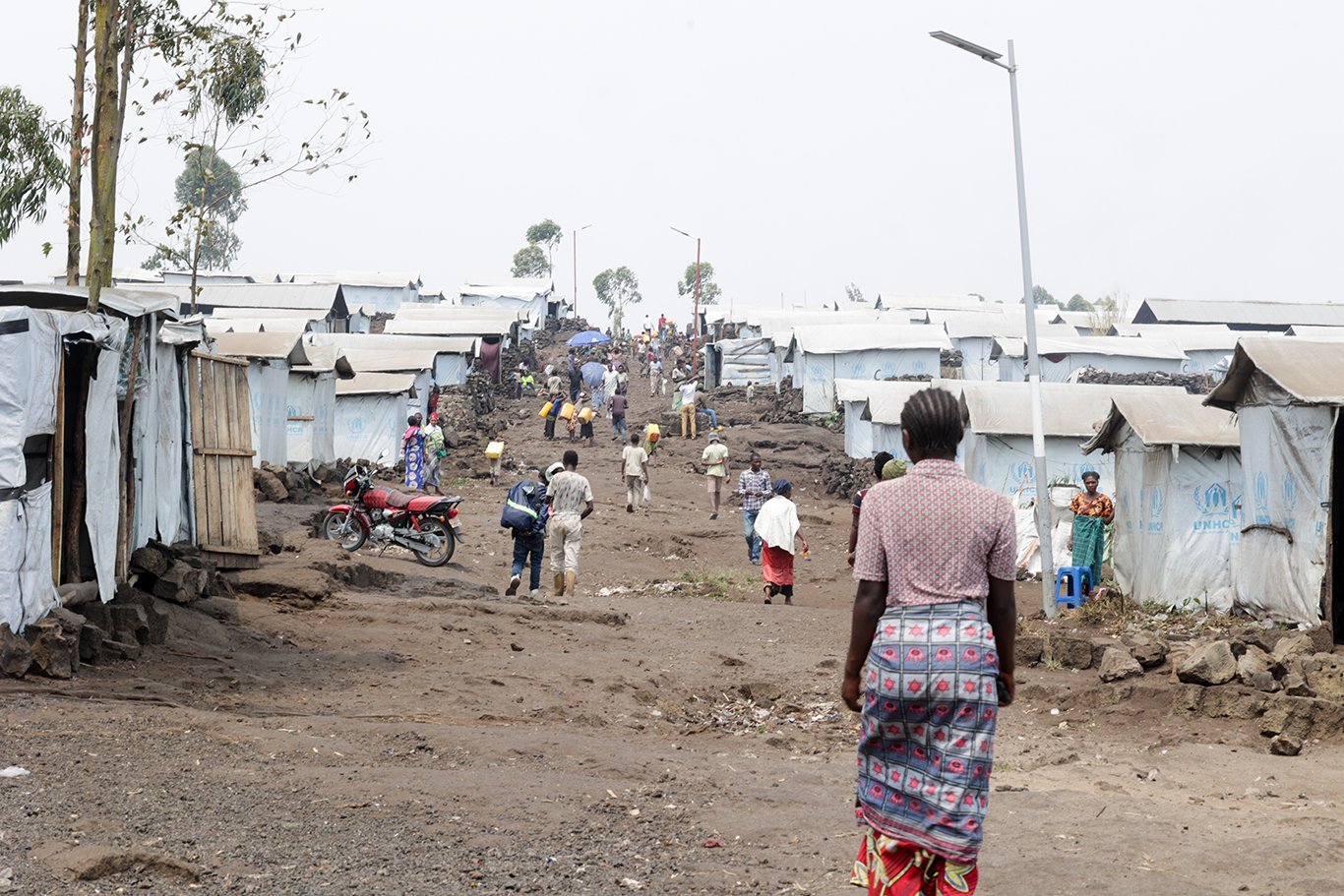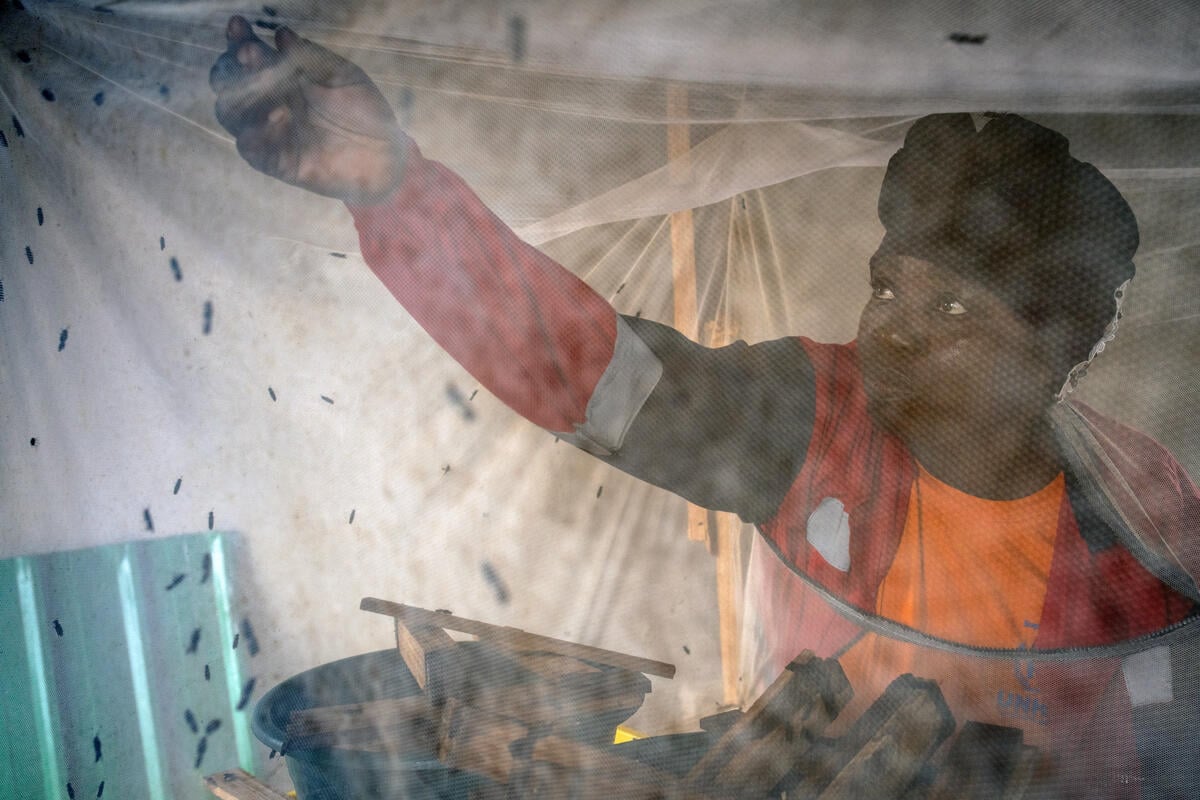Telling the truth yields relief and vital documents in Burundi
Telling the truth yields relief and vital documents in Burundi

BWAGIRIZA REFUGEE CAMP, Burundi, April 24 (UNHCR) - At first, Congolese refugee Wivine Bahati Mulemaz was apprehensive about the extensive document-checking exercise being carried out by the UN refugee agency and the Burundian government at this camp in eastern Burundi.
"I did not understand because there were refugees who were saying that you [UNHCR] wanted to destroy everything," the petite woman says, smiling broadly. "People were talking about the makanaki - people added to ration cards to increase the family size. They were saying the point of the verification was only to reduce the family size."
In a refugee camp where ration cards are literally a meal ticket, Wivine confesses, "I thought that there would be a mess with the ration cards. I thought that they would cut our ration cards."
Flashing another smile, she says that finally, "I understood that the aim of the verification is to correct the mistakes and the lies. I was happy about that. One feels relieved when one can tell the truth. The truth gives us a better life."
A better life and some prized documentation. During the verification campaign, all 43,189 refugees in Burundi are being called to show up with their documents and explain who they are and their relationship to everyone in their family. At the end they come away with valuable government ID cards (complete with hard-to-forge holograms), updated ration cards that will entitle them to food in the camps, and a new family document with photos of all family members.
All these add up to better protection. Refugees can not only prove who they are and safeguard against being deported if they are outside the camps, the exercise also ensures that refugees with special needs - children on their own or people with disabilities - get the services they should have.
The campaign kicked off in Bwagiriza in March and will wrap up in the capital, Bujumbura, in September.
Wivine was especially grateful for a UNHCR-run information campaign that preceded the document-checking. She admits she was so confused she attended three information sessions in different "villages" in the camp just to figure out what to expect and what to do.
Part of the campaign was a skit composed and acted by Congolese refugees in which a young man confessed to having illegally registered a Burundian child on his ration card. He fell to his knees, saying God had told him to come clean because he recognized that receiving extra food amounted to theft. A second actor, playing a pastor, offered absolution - as long as he told the truth during the verification exercise.
It seemed to have had an effect on Isaac Semuhanuka, a 49-year-old Congolese refugee teacher. He came forward to remove his sister's child from his ration card because she does not live in the camp. "I was the one who wanted to say that the child is not here and that it had to be deactivated," he says, adding he no longer wanted to accept food for someone who was no longer in the camp.
The verification campaign, he adds, "allows us to tell the truth and to be open." Recalling that during the information campaign UNHCR officers stressed the importance of telling the truth, Isaac says: "The fact that we can tell the truth also relieves us."
After queuing and returning several times, Wivine had a tangible pay-off for her time and her honesty. She came away with a refugee card, ration card and a proof of registration - the last was a new document for her.
A married woman, Wivine has four children and also takes care of three of her relatives' children. The new documents, she feels, bring them all an added sense of security. "If someone bothers me, I can show him this," she says, waving her refugee card.
It's just as well, because after the trauma she suffered when she left the violence of South Kivu province in eastern Democratic Republic of the Congo in 1996, she feels "I have no home there. I think I will be a refugee until I die."
By Hannah Simon and Tony Tumagu in Bwagiriza Refugee Camp, Burundi


